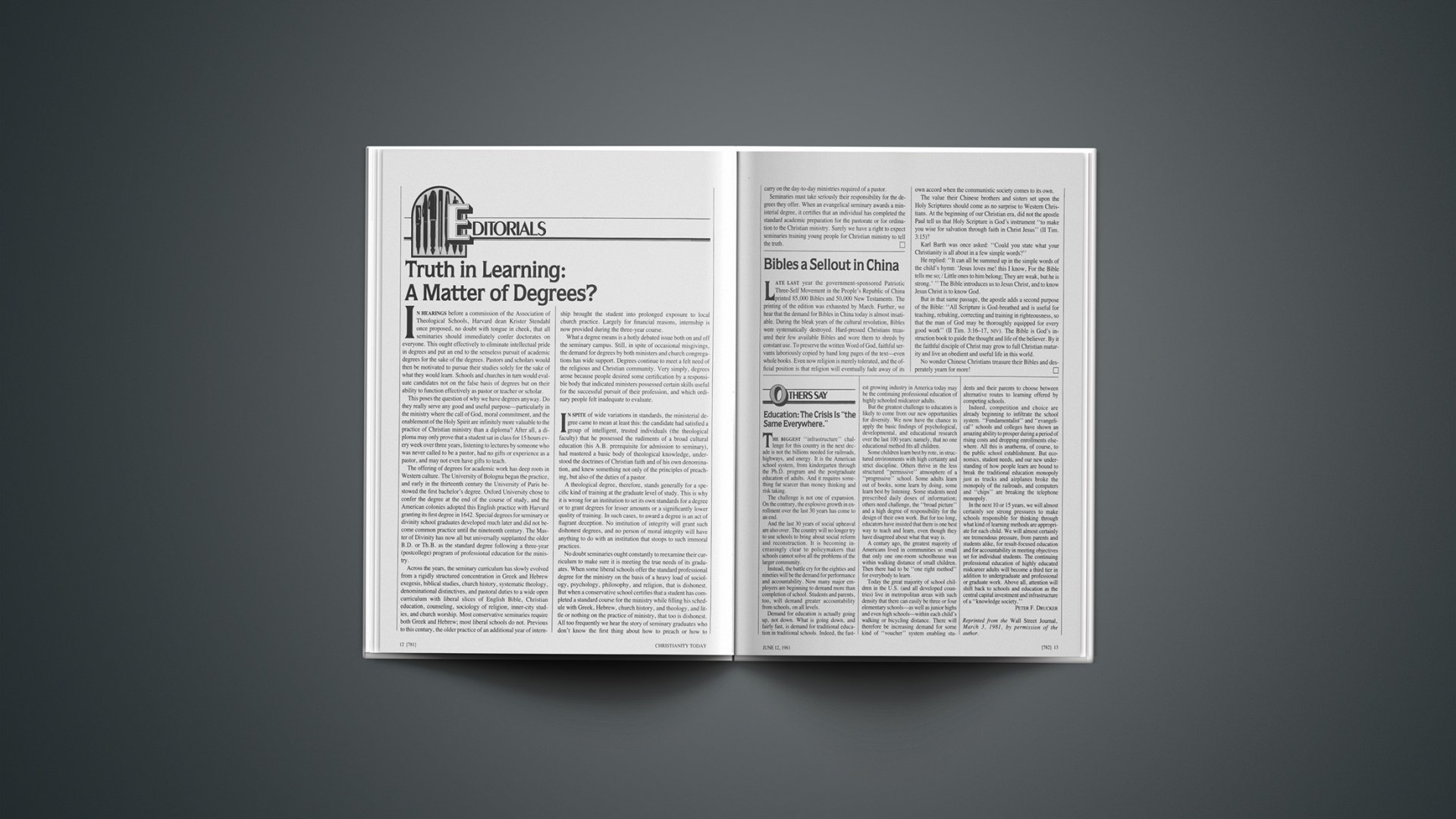The biggest “infrastructure” challenge for this country in the next decade is not the billions needed for railroads, highways, and energy. It is the American school system, from kindergarten through the Ph.D. program and the postgraduate education of adults. And it requires something far scarcer than money thinking and risk taking.
The challenge is not one of expansion. On the contrary, the explosive growth in enrollment over the last 30 years has come to an end.
And the last 30 years of social upheaval are also over. The country will no longer try to use schools to bring about social reform and reconstruction. It is becoming increasingly clear to policymakers that schools cannot solve all the problems of the larger community.
Instead, the battle cry for the eighties and nineties will be the demand for performance and accountability. Now many major employers are beginning to demand more than completion of school. Students and parents, too, will demand greater accountability from schools, on all levels.
Demand for education is actually going up, not down. What is going down, and fairly fast, is demand for traditional education in traditional schools. Indeed, the fastest growing industry in America today may be the continuing professional education of highly schooled midcareer adults.
But the greatest challenge to educators is likely to come from our new opportunities for diversity. We now have the chance to apply the basic findings of psychological, developmental, and educational research over the last 100 years: namely, that no one educational method fits all children.
Some children learn best by rote, in structured environments with high certainty and strict discipline. Others thrive in the less structured “permissive” atmosphere of a “progressive” school. Some adults learn out of books, some learn by doing, some learn best by listening. Some students need prescribed daily doses of information; others need challenge, the “broad picture” and a high degree of responsibility for the design of their own work. But for too long, educators have insisted that there is one best way to teach and learn, even though they have disagreed about what that way is.
A century ago, the greatest majority of Americans lived in communities so small that only one one-room schoolhouse was within walking distance of small children. Then there had to be “one right method” for everybody to learn.
Today the great majority of school children in the U.S. (and all developed countries) live in metropolitan areas with such density that there can easily be three or four elementary schools—as well as junior highs and even high schools—within each child’s walking or bicycling distance. There will therefore be increasing demand for some kind of “voucher” system enabling students and their parents to choose between alternative routes to learning offered by competing schools.
Indeed, competition and choice are already beginning to infiltrate the school system. “Fundamentalist” and “evangelical” schools and colleges have shown an amazing ability to prosper during a period of rising costs and dropping enrollments elsewhere. All this is anathema, of course, to the public school establishment. But economics, student needs, and our new understanding of how people learn are bound to break the traditional education monopoly just as trucks and airplanes broke the monopoly of the railroads, and computers and “chips” are breaking the telephone monopoly.
In the next 10 or 15 years, we will almost certainly see strong pressures to make schools responsible for thinking through what kind of learning methods are appropriate for each child. We will almost certainly see tremendous pressure, from parents and students alike, for result-focused education and for accountability in meeting objectives set for individual students. The continuing professional education of highly educated midcareer adults will become a third tier in addition to undergraduate and professional or graduate work. Above all, attention will shift back to schools and education as the central capital investment and infrastructure of a “knowledge society.”
Reprinted from the Wall Street Journal, March 3, 1981, by permission of the author.










